Learn to Ace the Micro Stakes at the Very Beginning
 The micro stakes, often regarded as the starting point for budding poker players, may seem insignificant at first glance. But don’t be fooled. These low-stakes tables serve as a vital training ground for honing your skills and building a solid foundation. To ace the micro stakes, it goes beyond basic poker concepts such as hand rankings, position play, and pot odds. So familiarize yourself with these fundamental principles to gain an edge over your opponents right from the start.
The micro stakes, often regarded as the starting point for budding poker players, may seem insignificant at first glance. But don’t be fooled. These low-stakes tables serve as a vital training ground for honing your skills and building a solid foundation. To ace the micro stakes, it goes beyond basic poker concepts such as hand rankings, position play, and pot odds. So familiarize yourself with these fundamental principles to gain an edge over your opponents right from the start.
Many pros explained that discipline is key when playing in the micro stakes. With smaller pots and looser competition, it can be tempting to get involved in every hand. However, exercising restraint and only playing premium hands will prevent unnecessary losses and set you up for success down the line. Mastering the micro stakes is not just about winning money; it’s about acquiring knowledge that will propel you toward becoming a formidable force in online poker tournaments.
Try Not to Call 3-bets Out of Position Often
If you are facing a reraise from an opponent and you don’t have a strong hand or positional advantage, it’s usually best to fold. Why is this important? Well, when you call a 3-bet out of position, you put yourself at a significant disadvantage. Your opponent has shown strength by raising again after your initial bet or raise, indicating they likely have a strong hand themselves.
By calling in this situation, you risk being outplayed post-flop and losing even more chips. Instead of making these risky calls out of position, focusing on playing stronger hands and utilizing your positional advantage is better. When you have good cards and are in late position (closer to the dealer button), you can take control of the betting action and apply pressure on your opponents.
Barrel Scare Cards to Push the Weak Regulars to Fold
Scare cards potentially improve your hand or give the impression that they do. So utilizing these cards strategically means you can push weak regulars into folding, giving yourself an edge in the game. But when deciding whether to barrel scare cards or not, be sure to think of your position at the table. Being in position gives you more control over the hand and allows you to apply pressure on your opponents.
So if you have scare cards and are in position, it may be a good opportunity to fire multiple bets and put pressure on weaker players. Aside from this, consider your opponent’s tendencies. If they tend to fold easily or show signs of weakness when faced with aggression, then using scare cards as a bluffing tool can be highly effective. Next, pay attention to board texture when deciding whether or not to barrel scare cards.
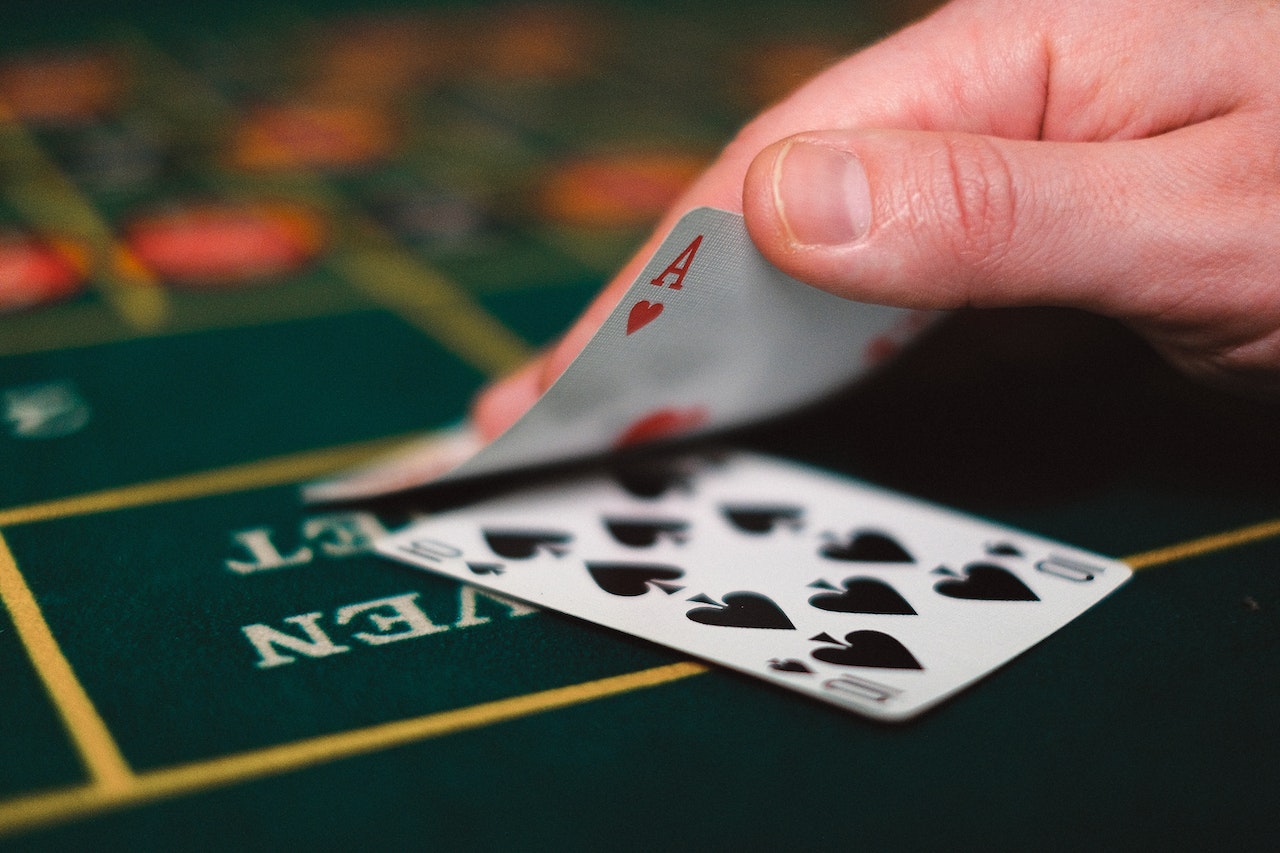
Never Bluff the Fish
They’re often easy targets for more experienced players looking to exploit their weaknesses. But let’s get real. Bluffing can also be a risky move that should only be used strategically. When you’re playing against less experienced players, like the fish, they are less likely to fold their hands even if they have weak cards. This means that trying to bluff them is usually futile and could end up costing you money. Instead of bluffing the fish, focus on playing solid poker and capitalizing on their mistakes.
Mastering the game of online poker is no easy task, but with solid dedication and countless hours of practice, it is possible to dominate the match like a pro. That said, follow these winning tips above so you can hone your skills while elevating your chances of success in the virtual felt.
…



 Adjusting your gameplay is a crucial aspect of poker strategy. It involves analyzing the playing style of your opponent and making necessary changes to your approach in response. This can include altering your bet sizing, bluffing less or more, or even changing up the types of hands you play. One key factor in adjusting your gameplay is understanding how tight or lose an opponent plays. A tight player will only play strong hands, while a loose player may play weaker ones.
Adjusting your gameplay is a crucial aspect of poker strategy. It involves analyzing the playing style of your opponent and making necessary changes to your approach in response. This can include altering your bet sizing, bluffing less or more, or even changing up the types of hands you play. One key factor in adjusting your gameplay is understanding how tight or lose an opponent plays. A tight player will only play strong hands, while a loose player may play weaker ones. Exploiting your opponent’s weaknesses is a crucial part of any successful poker
Exploiting your opponent’s weaknesses is a crucial part of any successful poker 



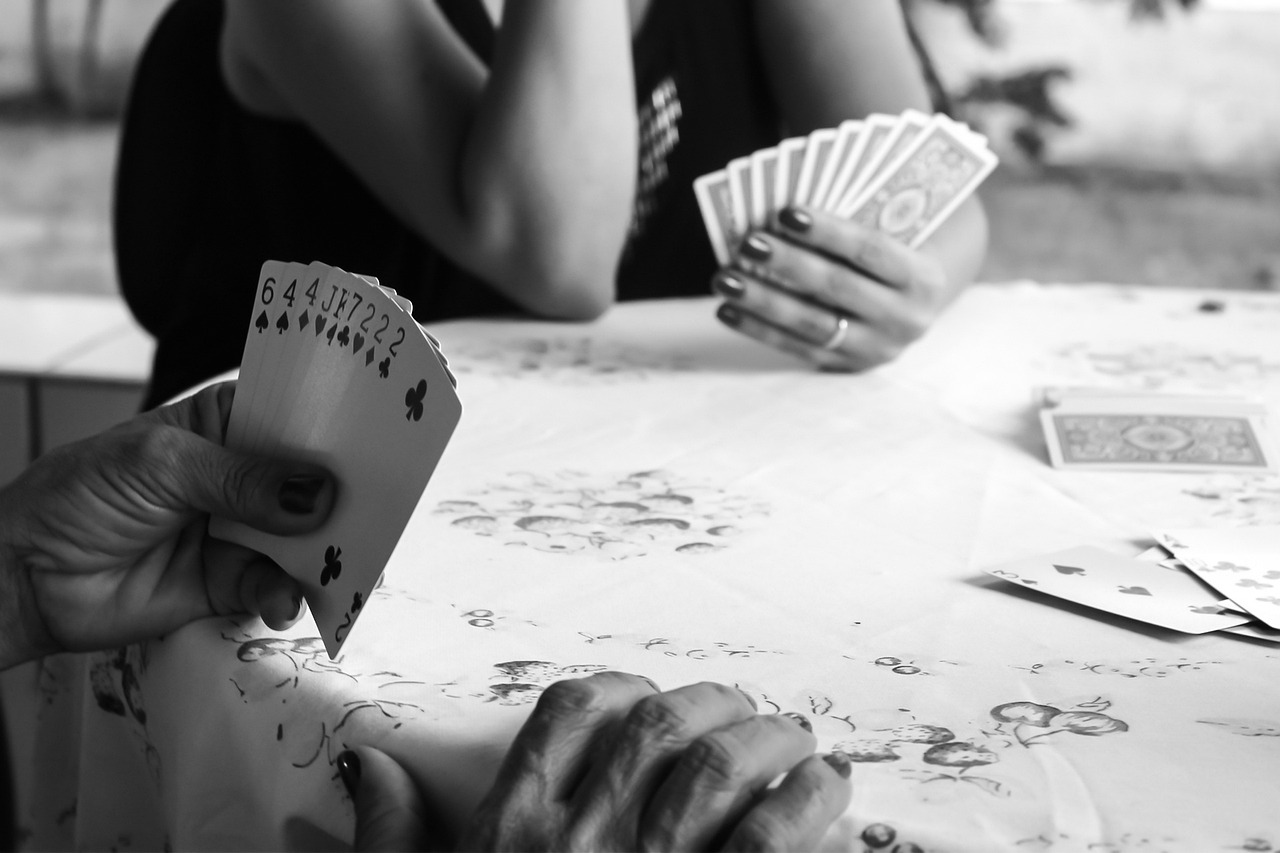
 One of the biggest reasons people lose at poker is because they don’t bluff enough. Bluffing is an integral part of the game and can often be the difference between winning and losing. If you’re not bluffing enough, you’ll likely get called out more often and lose pots you could have won. To improve your bluffing, you need to learn how to read other players and know when they are likely to call your bluffs. If you can do this, you’ll be able to bluff more often and win more pots.
One of the biggest reasons people lose at poker is because they don’t bluff enough. Bluffing is an integral part of the game and can often be the difference between winning and losing. If you’re not bluffing enough, you’ll likely get called out more often and lose pots you could have won. To improve your bluffing, you need to learn how to read other players and know when they are likely to call your bluffs. If you can do this, you’ll be able to bluff more often and win more pots. Many people lose at poker because they play too many hands. They think they can win every hand and end up losing a lot of money. If you want to win at poker, you need to be more selective with the hands you play. Only play when you have a good chance of winning and fold when you don’t. Playing fewer hands may seem like it will decrease your chances of winning, but it will actually increase them. So, next time you’re playing poker, be selective with the hands you play and only bet when you have a good chance of winning.
Many people lose at poker because they play too many hands. They think they can win every hand and end up losing a lot of money. If you want to win at poker, you need to be more selective with the hands you play. Only play when you have a good chance of winning and fold when you don’t. Playing fewer hands may seem like it will decrease your chances of winning, but it will actually increase them. So, next time you’re playing poker, be selective with the hands you play and only bet when you have a good chance of winning.
 Pai Gow Poker is played with a deck of 52 cards plus two jokers. The jokers can be used as wildcards to complete a flush or a straight. Pai Gow Poker is usually played with six players and one dealer. Each player is dealt seven cards face down. The dealer then sets the cards into two hands, a two-card hand and a five-card hand. The player can then choose to set their own cards or ask the dealer to do it for them.
Pai Gow Poker is played with a deck of 52 cards plus two jokers. The jokers can be used as wildcards to complete a flush or a straight. Pai Gow Poker is usually played with six players and one dealer. Each player is dealt seven cards face down. The dealer then sets the cards into two hands, a two-card hand and a five-card hand. The player can then choose to set their own cards or ask the dealer to do it for them. There are a few things you need to remember if you want to win Pai Gow Poker. Firstly, always remember that the jokers are wildcards. This means that they can be used to complete a flush or a straight. Secondly, the five-card hand must always be higher than the two-card hand. This is because the five-card hand is worth more points.
There are a few things you need to remember if you want to win Pai Gow Poker. Firstly, always remember that the jokers are wildcards. This means that they can be used to complete a flush or a straight. Secondly, the five-card hand must always be higher than the two-card hand. This is because the five-card hand is worth more points. But what about the odds? Pai Gow Poker has a house edge of about 2.7%. This means that for every $100 you bet, you can expect to lose about $2.70 over the long run. However, this does not mean that you will permanently lose. Pai Gow Poker is a game of chance; sometimes, you will get lucky and win. The best way to win Pai Gow Poker is to play often and practice. The more you play, the better your chances of winning will be.
But what about the odds? Pai Gow Poker has a house edge of about 2.7%. This means that for every $100 you bet, you can expect to lose about $2.70 over the long run. However, this does not mean that you will permanently lose. Pai Gow Poker is a game of chance; sometimes, you will get lucky and win. The best way to win Pai Gow Poker is to play often and practice. The more you play, the better your chances of winning will be.
 This is a massive no-no in poker. It doesn’t matter how good or bad your hand is, you should never spill the beans about what you’re holding until it’s your turn to do so. Not only is this considered very rude, but it can also give other players an unfair advantage. So next time you feel chatty, resist the urge to talk about your hand and wait until it’s your turn to speak. It’s also a big no-no to talk about your hand while someone else is still making their decision.
This is a massive no-no in poker. It doesn’t matter how good or bad your hand is, you should never spill the beans about what you’re holding until it’s your turn to do so. Not only is this considered very rude, but it can also give other players an unfair advantage. So next time you feel chatty, resist the urge to talk about your hand and wait until it’s your turn to speak. It’s also a big no-no to talk about your hand while someone else is still making their decision.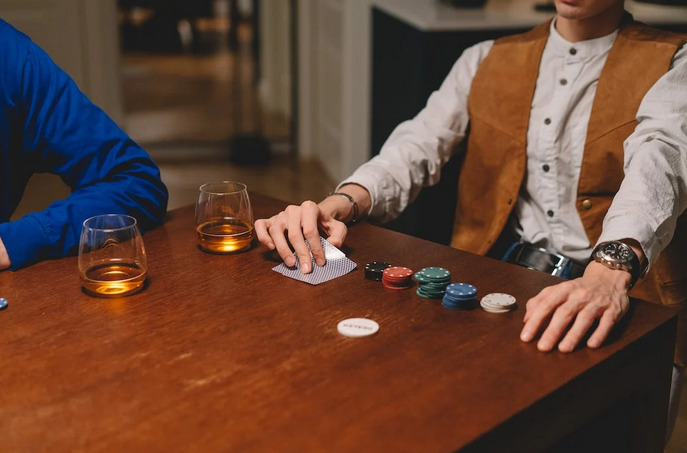 We’ve all been there. You’re sure you have the winning hand, but your opponent hits their miracle card and takes the pot. It’s called a bad beat, and it happens to everyone. The key is to not get too upset about it and just accept that sometimes the cards don’t go your way. If you start throwing tantrums or insulting other players, you’re not going to make any friends. And at the end of the day, isn’t that what poker is all about? It’s about making friends and having a good time, right?
We’ve all been there. You’re sure you have the winning hand, but your opponent hits their miracle card and takes the pot. It’s called a bad beat, and it happens to everyone. The key is to not get too upset about it and just accept that sometimes the cards don’t go your way. If you start throwing tantrums or insulting other players, you’re not going to make any friends. And at the end of the day, isn’t that what poker is all about? It’s about making friends and having a good time, right?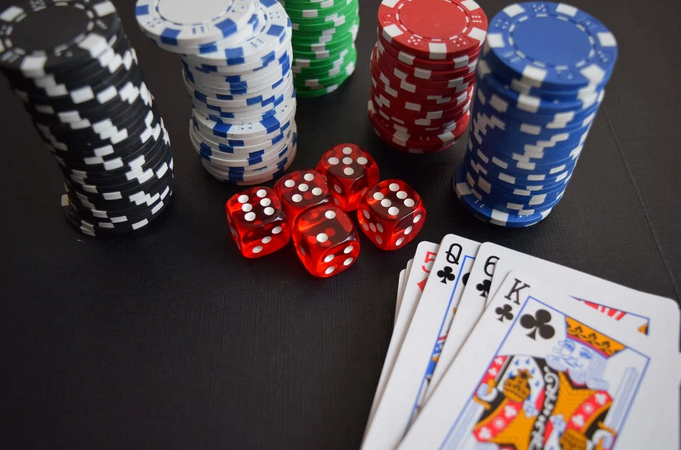
 If you have a weak hand preflop, it’s doubtful that you will make a hand after the flop. In fact, the odds are stacked against you. For example, if you have a pair of deuces (22) and the flop comes A54, there’s only about an 11% chance of making a set. And even if you make a set, someone else likely has a higher set or an ace-high flush. So, in this case, it’s probably best to just fold and save your chips for a better opportunity.
If you have a weak hand preflop, it’s doubtful that you will make a hand after the flop. In fact, the odds are stacked against you. For example, if you have a pair of deuces (22) and the flop comes A54, there’s only about an 11% chance of making a set. And even if you make a set, someone else likely has a higher set or an ace-high flush. So, in this case, it’s probably best to just fold and save your chips for a better opportunity. When you’re dealt a pocket pair preflop, the general rule of thumb is to only play it if there are two or fewer opponents. If there are more than two opponents, the chances of someone having a higher pocket pair or a better drawing hand are too high. For example, suppose you’re dealt a pair of eights (88) and three other players are in the hand. The flop comes A54. Even if you make a set, someone else likely has a higher set or a better flush draw. So, in this case, you should probably just fold and live to fight another day.
When you’re dealt a pocket pair preflop, the general rule of thumb is to only play it if there are two or fewer opponents. If there are more than two opponents, the chances of someone having a higher pocket pair or a better drawing hand are too high. For example, suppose you’re dealt a pair of eights (88) and three other players are in the hand. The flop comes A54. Even if you make a set, someone else likely has a higher set or a better flush draw. So, in this case, you should probably just fold and live to fight another day.
 First, you should avoid
First, you should avoid  Moreover, you don’t need poker cheating tricks to win poker matches. If you’re dedicated to the game and have a good strategy, you can win without resorting to cheating. Cheating is a sign of weakness, showing that you’re not confident in your abilities. So, if you want to be a true poker champion, avoid poker cheating tricks at all costs.
Moreover, you don’t need poker cheating tricks to win poker matches. If you’re dedicated to the game and have a good strategy, you can win without resorting to cheating. Cheating is a sign of weakness, showing that you’re not confident in your abilities. So, if you want to be a true poker champion, avoid poker cheating tricks at all costs.
 Another reason poker is the best gambling game is that it requires more skill than luck. Sure, luck is still a factor, but skilled players can minimize the role of luck by making intelligent decisions. For example, a player who knows when to fold an inferior hand can avoid losing money to luckier players.
Another reason poker is the best gambling game is that it requires more skill than luck. Sure, luck is still a factor, but skilled players can minimize the role of luck by making intelligent decisions. For example, a player who knows when to fold an inferior hand can avoid losing money to luckier players.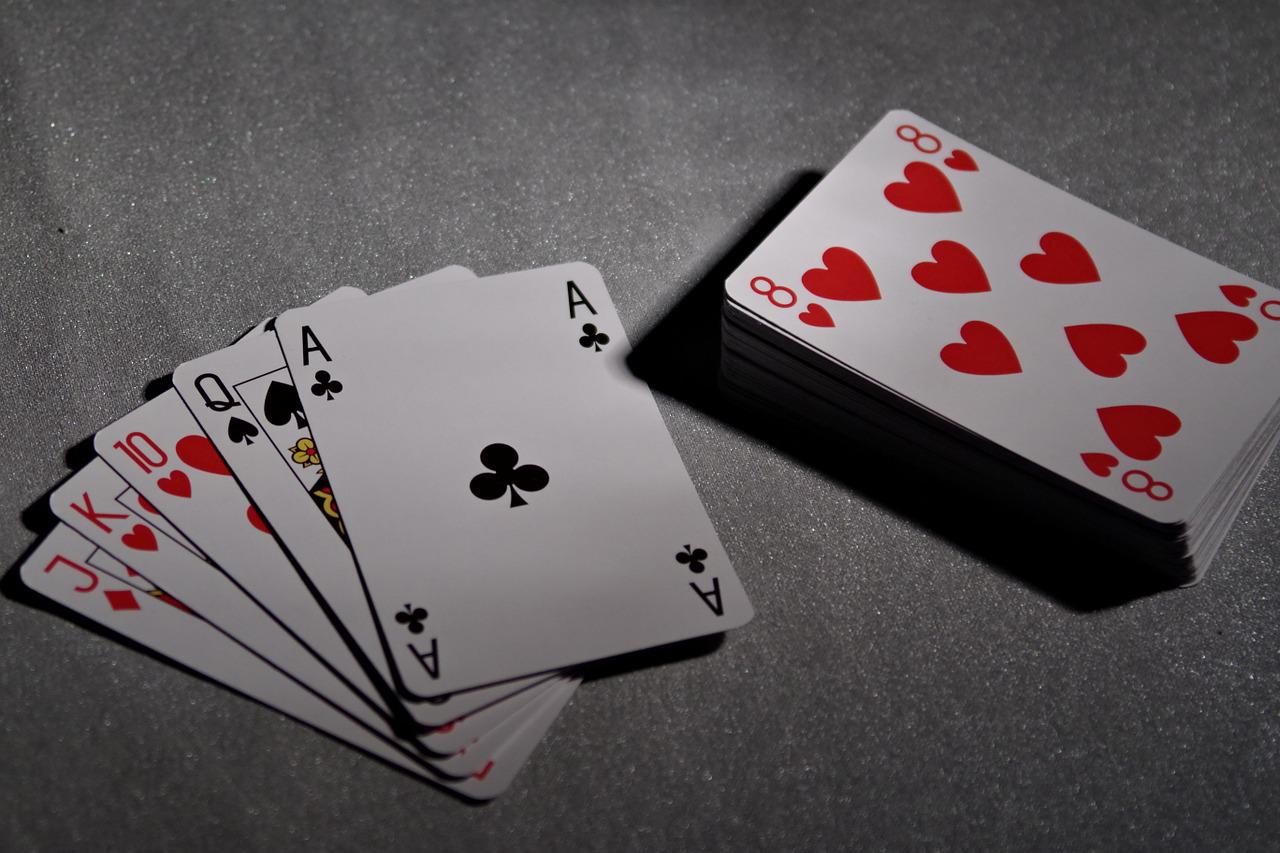
 One of the most critical skills you need to master if you want to win poker is card memorization. This may seem like a daunting task, but it’s actually not as difficult as it sounds. There are plenty of techniques and strategies to help you easily memorize what cards have been played. If you think this is impossible, think again because MIT students have been using this method to win poker tournaments for years.
One of the most critical skills you need to master if you want to win poker is card memorization. This may seem like a daunting task, but it’s actually not as difficult as it sounds. There are plenty of techniques and strategies to help you easily memorize what cards have been played. If you think this is impossible, think again because MIT students have been using this method to win poker tournaments for years.
 A poker analyzer is a small device that you can analyze your opponents’ hands. By knowing what cards they have, you can make better decisions about how to play your hand. This information can be invaluable in giving you the edge you need to win more often. There are a few different poker analyzers on the market, but they all work in basically the same way. You will need to purchase a deck of cards compatible with the analyzer you choose. The cards will have unique marks on them that the analyzer will be able to read. Once you have your marked deck, you can begin using the poker analyzer to your advantage.
A poker analyzer is a small device that you can analyze your opponents’ hands. By knowing what cards they have, you can make better decisions about how to play your hand. This information can be invaluable in giving you the edge you need to win more often. There are a few different poker analyzers on the market, but they all work in basically the same way. You will need to purchase a deck of cards compatible with the analyzer you choose. The cards will have unique marks on them that the analyzer will be able to read. Once you have your marked deck, you can begin using the poker analyzer to your advantage.
 The first step to winning poker is studying the game and figuring out how best you should play. Before heading into a match, you should take some time to look over your hand of cards and consider if this would be a good fit for your strategy. Keep in mind that even though there’s luck involved, it can’t win every single round – you have to put in some effort as well!
The first step to winning poker is studying the game and figuring out how best you should play. Before heading into a match, you should take some time to look over your hand of cards and consider if this would be a good fit for your strategy. Keep in mind that even though there’s luck involved, it can’t win every single round – you have to put in some effort as well! When playing poker, it’s essential to keep track of what you’re doing. Not only will this help you stay on track with your strategy, but it’ll also help you avoid making any costly mistakes. By keeping track of the hands, you’ve played, and how they turned out, you’ll be able to identify patterns and figure out which plays are best for you.
When playing poker, it’s essential to keep track of what you’re doing. Not only will this help you stay on track with your strategy, but it’ll also help you avoid making any costly mistakes. By keeping track of the hands, you’ve played, and how they turned out, you’ll be able to identify patterns and figure out which plays are best for you.